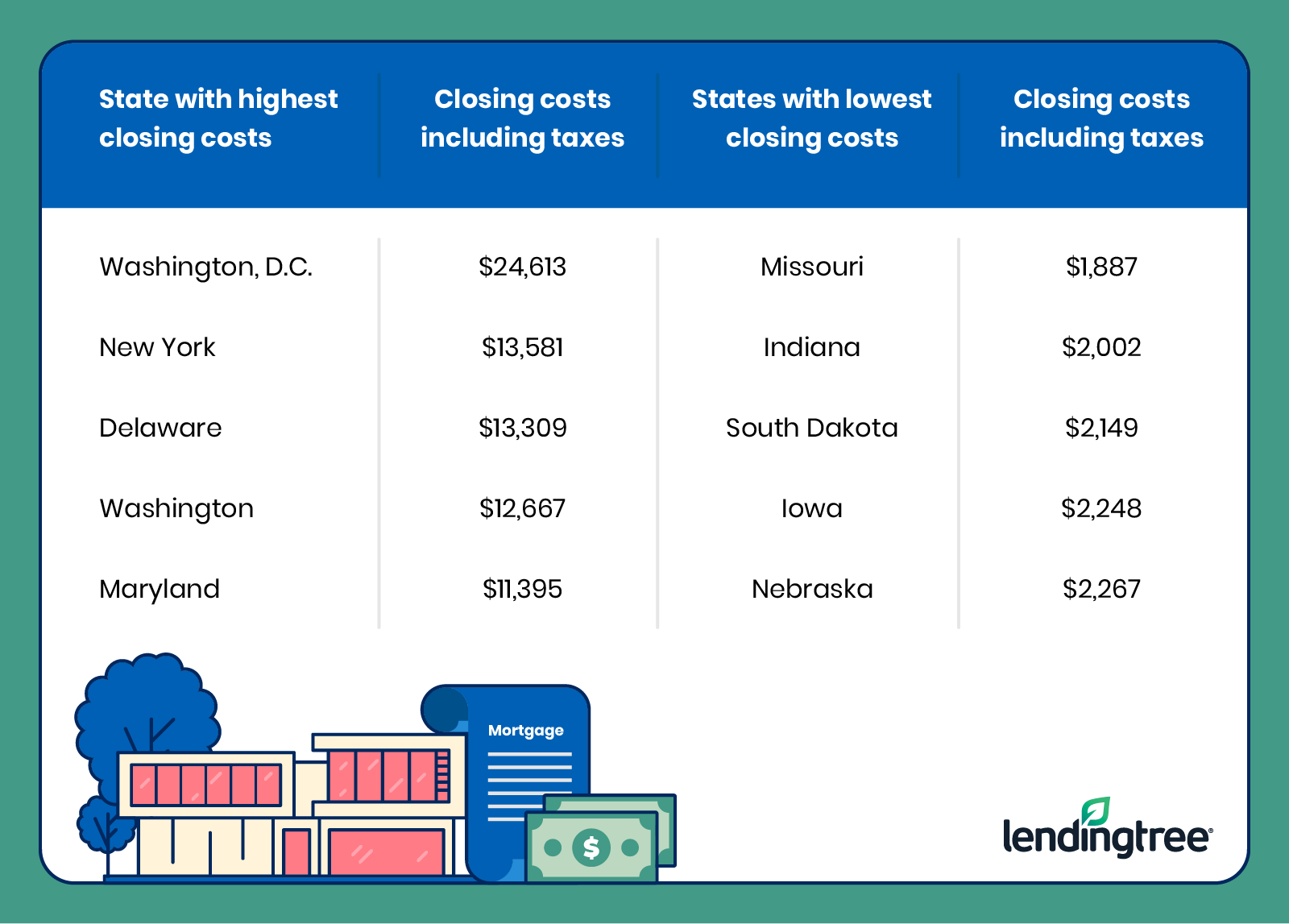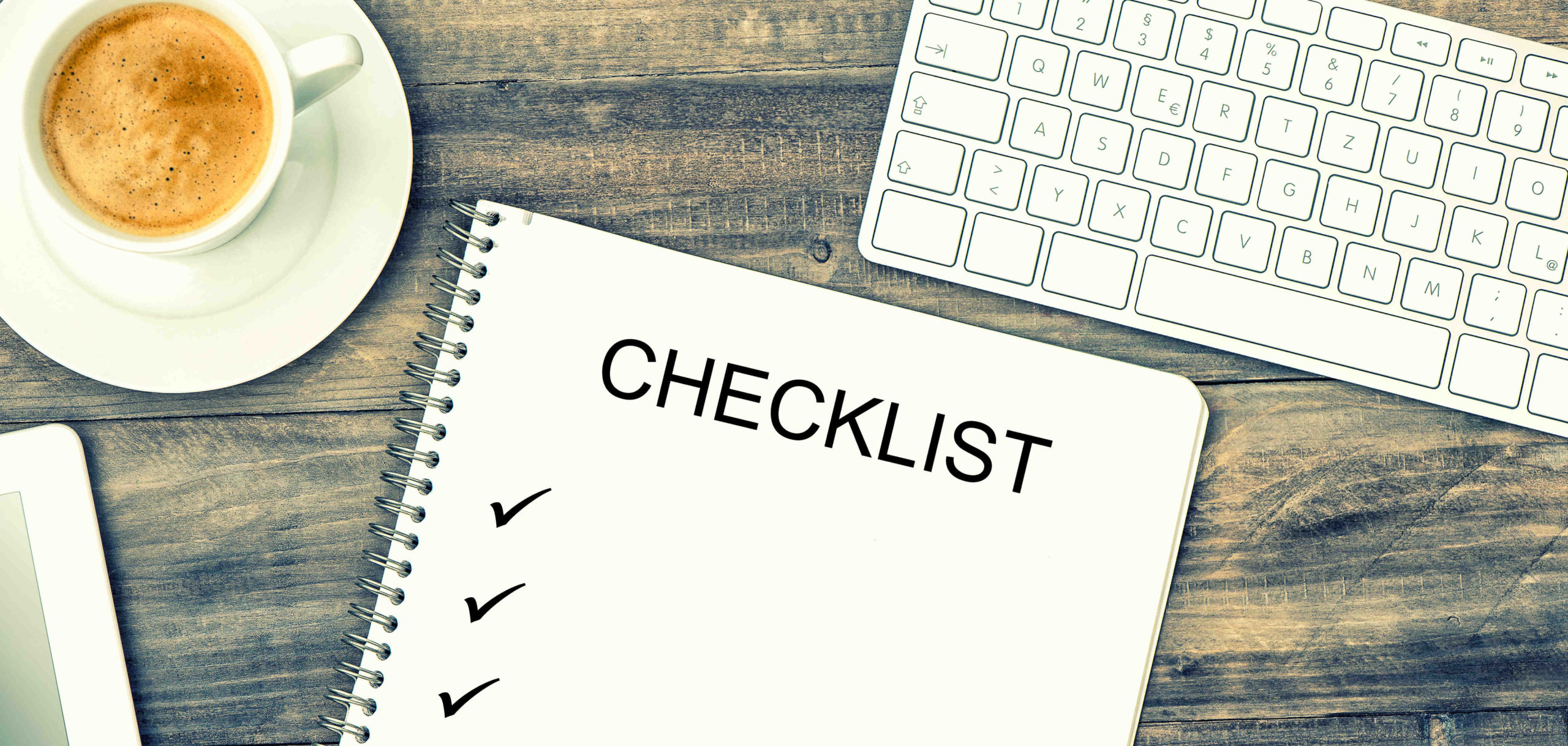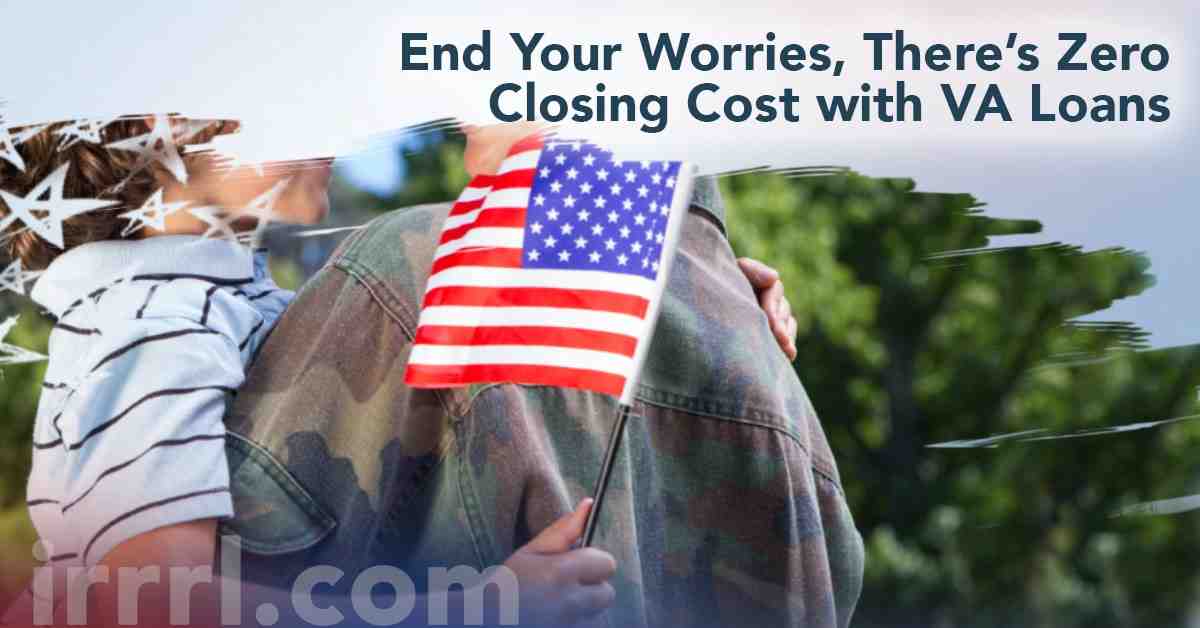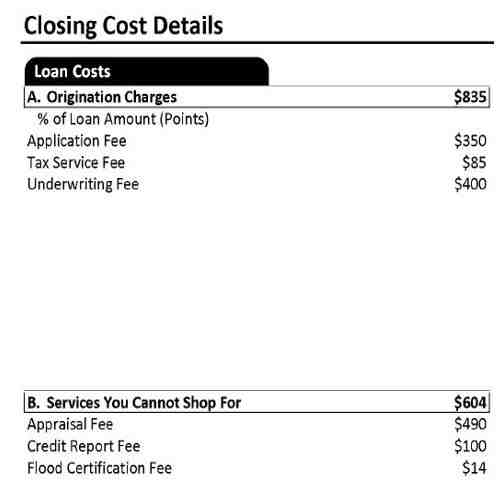Don’t Take a No for an Answer In the vast majority of cases, inexperienced loan officers or strict overlays are the reason for being denied a VA loan. If your lender is not approved to make a manual subscription on a VA home loan, you can tell that you are not approved without further explanation or options.
Are handrails required for VA loans?
Contents

The VA Lender’s Manual does not provide specifics. Rather, the VA allows each appraiser to determine whether there is a threat to the safety of a staircase or deck. … In general, most of the stairs should be accompanied by a sturdy handrail, and the decks should be guarded by a reasonably high rail.
What repairs does the VA loan need? If the total cost of the repairs is $ 500 or less, the work should not be completed until an underwriter has conditionally approved the loan. If the total cost of the repairs is greater than $ 500, the work should not be completed until the lender comes out clear to close the loan.
What are the property requirements for a VA loan?
VA Minimum Property Requirements
- Mechanical systems that are safe to operate.
- No signs of leakage in basements and crawl spaces.
- No sign of termites, dry rot, or fungal growth.
- Adequate heating systems.
- Adequate roofs.
- No lead-based paints (to be remedied if it existed in the past)
What type of property qualifies for a VA loan?
One wide homes should be at least 400 square feet. Homes with double width must be at least 700 square feet. Homes should have permanent facilities for eating, cooking, sleeping and sanitary.
Why would a house not qualify for a VA loan?
Insufficient Heating Homes that do not have adequate heating systems will never pass the VA assessment. For a home to be approved there must be an efficient and acceptable source of heat that can provide residents with a comfortable living condition.
What will fail a VA home inspection?
What Will Fail VA Assessment? In general, any visible health or safety concerns will raise an issue on a VA assessment report. You will not be able to close on a home until these issues are resolved. In some cases, sellers are willing to cover the cost of essential repairs rather than losing sales.
What is checked in a VA inspection?
It assesses property in accordance with the VA Minimum Property Requirements (MPRs), which specifically address the health and safety conditions of the property. … Evaluates household items not covered by the VA estimator, such as a full roof inspection and potential plumbing problems.
Is it hard to pass a VA home inspection?
The VA assessment guidelines can be strict and can eliminate fixer uppers from the argument. Many of the guidelines can be frustrating for military buyers who are considering older homes in need of renovation. If a home fails to meet the MPRs the buyer will have to decide how to proceed.
What is required for a VA home inspection?
The VA appraisal process requires that all mechanical systems in the home be of adequate size and strength to fully serve the property in which they are installed; if an HVAC system, for example, is not strong enough to properly heat and cool the entire property, it will not â € œpassâ € evaluation and corrections (plus …
What does a VA inspection look for?
These include chimneys and fireplaces, water heaters, ovens, air conditioning units, and septic systems if applicable. Roof and attic. In addition to inspecting the roof construction, your home inspector should check the frame, flashing and gutters, insulation and ventilation. Electricity.
Is it hard to pass a VA home inspection?
The VA assessment guidelines can be strict and can eliminate fixer uppers from the argument. Many of the guidelines can be frustrating for military buyers who are considering older homes in need of renovation. If a home fails to meet the MPRs the buyer will have to decide how to proceed.
What does a VA loan cover?

A VA loan is a $ 0-down mortgage option issued by private lenders and partially backed, or secured, by the Department of Veterans Affairs (VA). Eligible borrowers can use VA loans to purchase property as their primary residence or refinance an existing mortgage.
How much can a VA loan cover? VA loan limits vary by county and currently range from $ 548,250 to $ 822,375. While qualified Veterans with their full entitlement can borrow as much as the lender is willing to extend, those with a reduced or reduced entitlement are bound by the VA loan limits.
What are the benefits of a VA loan?
VA Loan Benefits
- No down payment. By far, the single biggest benefit of VA loans is that qualified Veterans can buy without a down payment. …
- No Private Mortgage Insurance. …
- Competitive Interest Rates. …
- Relaxed Credit Requirements. …
- Closing Cost Limits. …
- Lifetime Benefit. …
- No Prepayment Penalty. …
- Avoiding Foreclosure.
What are the pros and cons of a VA loan?
| Pro | With |
|---|---|
| No down payment | VA Funding Payment |
| No PMI | The VA funding fee increases after the first use |
| Higher allowable DTI | The loan may exceed the market value |
| Credit flexibility | For primary residences only |
What is an advantage of a VA loan compared to a traditional mortgage?
Typically, VA loans tend to have lower interest rates – and if rates fall, refinancing with a VA Interest Rate Reduction Loan (IRRRL) may be more easier than with a conventional loan. In many cases a VA Interest Rate Reduction Loan (IRRRL) may not require a valuation or pocket money at closing.
Why are VA loans bad?
The lower interest rates on VA loans are misleading. Both end up costing you much more in interest over the life of the loan than their 15-year-old counterparts. Also, you’re more likely to get a lower interest rate on a 15-year fixed-rate conventional loan than on a 15-year VA loan.
Why you shouldn’t use a VA loan?
Since you need to invoice the cost of the VA financing fee, you may ultimately end up with a loan that exceeds the market value of your home. Manufactured homes may require a minimum down payment and may not be eligible for a 30-year term. You cannot use VA loans for rental properties.
Why is a VA loan better?
VA loans typically have easier credit ratings compared to conventional loans. … Typically, VA loans tend to have lower interest rates – and if rates fall, refinancing with a VA Interest Rate Reduction Loan (IRRRL) can be easier than with a conventional loan.
Does a VA loan cover down payment?
Fortunately for military buyers who may be short of cash, the VA loan program does not require a down payment and buyers are not charged mortgage insurance. Together these two benefits can save homeowners a significant amount of money.
How much do you have to put down with a VA loan?
VA and USDA loans do not require a down payment, which is a great benefit. Conventional loans typically require a down payment of at least 5 percent, although some lenders may be downgraded by up to 3 percent. For FHA loans, the minimum is 3.5 percent.
Can you include closing costs in VA loan?
The VA loan allows you to include some of the closing costs in the total amount of your loan. The great thing is that you can roll your financing fee into the total amount of the mortgage. … The other fees that create your closing costs cannot be included in the loan.
What is the maximum VA loan amount?

About VA Loan Limits The standard VA loan limit is $ 548,250 for most U.S. counties in 2021, up from $ 510,400 in 2020. $ 765,600 in 2020.
What is the VA loan ceiling for 2020? The limit in 2020 is $ 510,400 in a typical U.S. county and higher in expensive housing markets, such as San Francisco County. If you are subject to VA loan limits, the lender requires a down payment if the purchase price is above the loan limit.
Can I get a 500000 VA loan?
One of the most common misconceptions is that VA loan limits represent the absolute maximum amount of money you can borrow using this long-cherished home loan benefit. The fact is that there is actually no maximum loan amount on a VA loan, which means you can borrow above the VA loan limit.
Can you buy a million dollar house with VA loan?
You can buy that more expensive home, and use a VA loan to do so. You only need to make a down payment of 25 percent on the amount by which you are above the VA limit. This same principle applies to every house price. Let’s say you wanted to buy a $ 1 million home in an area with a local ceiling of $ 600,000.
How much loan can I qualify for VA?
Eligible veterans, service members, and survivors with full entitlements no longer have loan limits of more than $ 144,000. This means you will not have to pay a down payment, and we guarantee your lender that if you default on a loan that is over $ 144,000, we will pay them up to 25% of the loan amount.
What is the maximum VA for 100% financing?
The current VA loan limit is set at $ 548,250 but may be higher in high-cost areas indicated by the VA.
What is the highest VA Interest Rate?
| Product | Interest rate | APR |
|---|---|---|
| Jumbo at a fixed rate of 30 years | 3,130% | 3,220% |
| 15-year flat-rate jumbo | 2,430% | 2,500% |
| 7/1 ARM Jumbo | 3,000% | 4,010% |
| 5/1 ARM Jumbo | 2,810% | 4,050% |
What is the max VA loan amount?
VA loans are available up to $ 548,250 in many areas but can exceed $ 800,000 for single-family homes in high-cost counties. Loan limits do not apply to all borrowers. The limit of your VA loan – or how much you can borrow without making a down payment – is based directly on your entitlement.
Can I get a VA loan for $1000000?
Features of VA Loan Financing up to 100 percent of home value. The national loan limit is $ 417,000, but can go up to $ 1,000,000 in high-cost areas. VA loan limits for your area are available on the VA site, and a VA lender can also provide you with local VA loan limits.
Can you use a VA loan on a million dollar home?
You can buy that more expensive home, and use a VA loan to do so. You only need to make a down payment of 25 percent on the amount by which you are above the VA limit. … Let’s say you wanted to buy a $ 1 million home in an area with a local ceiling of $ 600,000. You make a down payment of $ 100,000.
Why do sellers hate VA loans?

VA mortgage loans also come with minimum property requirements that can end up forcing homeowners to make many repairs. Because VA appraisals can increase their repair costs, home sellers sometimes refuse to accept purchase offers backed by the agency’s mortgage.
Why does a home seller not accept a VA loan? Some home sellers will not accept VA offers because they believe (wrongly) that they will have to pay all of the buyer’s closing costs. The VA limits what closing costs Veterans can pay, which is a huge benefit for those who have served our country.
Why VA loans are bad for sellers?
VA loans come with paperwork, evaluation delays and fees paid by sellers instead of buyers – all reasons the bids are being rejected, agents say. In addition, real estate agents and veterans say, some sellers reject offers because of misconceptions about the VA program.
Why do some sellers not accept VA loans?
In some cases, homeowners will not accept purchase offers backed by VA-guaranteed mortgages for fear of a low appraisal value. … Because VA appraisals can increase their repair costs, homeowners sometimes refuse to accept purchase offers backed by the agency’s mortgage.
What should a seller know about a VA loan?
And, for sellers, the most important thing to understand about VA loans is how good they are of a mortgage product for qualified borrowers. This high quality nature means that, if you deal with a veteran buyer, he or she will likely use the VA loan.
Can sellers discriminate against a VA loan?
No VA-approved lender can discriminate against a buyer. … No seller can refuse to offer property on a discriminatory basis – the seller is required to comply with the laws of the Fair Housing Act.
Can a seller refuse to accept a VA loan?
And the idea that sellers have to pay closing costs for VA buyers is simply not true. In short, there is no reason a seller should reject your purchase offer simply because you are using a VA loan.
Are VA loans a hassle for the seller?
The short answer is â € œno.â € It is true VA loans were once harder to close – but that’s an old story. Today, you are likely to have roughly the same issues with a buyer who has this type of mortgage as any other. And VA’s flexible guidelines may be the only reason why your buyer can buy your home.
Are VA loans a hassle for the seller?
The short answer is â € œno.â € It is true VA loans were once harder to close – but that’s an old story. Today, you are likely to have roughly the same issues with a buyer who has this type of mortgage as any other. And VA’s flexible guidelines may be the only reason why your buyer can buy your home.
Do sellers pay closing costs on VA loan?
Who pays the Closing Costs on a VA Loan? When using a VA loan, the buyer, seller, and lender each pay different parts of the closing costs. The seller cannot pay more than 4% of the total home loan in closing costs. But their part of the closing costs includes commissions for the buyer’s and seller’s real estate agents.
What fees do sellers pay on a VA loan?
In California, and nationwide, these “seller concessions” are generally limited to 4% of the loan amount. As it says on the VA website: â € œWe require that a seller cannot pay more than 4% of the total home loan at the seller’s concessions.
Why would seller pay closing costs?

Since the seller pays for certain items in your closing costs, it allows you to make a higher bid. Therefore, you will actually be paying your closing costs over the life of the loan rather than upfront at the closing table because they are now built into your loan amount.
When should I ask the seller to pay the closing costs? Sellers can also agree to pay the closing costs if it helps the sale go through and prevent them from having to pay for extensive or expensive repairs before agreeing to the purchase. You should still ask them to arrange something that does not pass the inspection.
How do I convince seller to pay closing costs?
Ways to get a Reseller cover your closing costs
- Pay the full asking Price. If you want to propose seller concessions, avoid making a lowball offer. …
- Be prepared to close. …
- Don’t Ask Excessive Questions. …
- Be Ready to Negotiate. …
- Watch out for the Market.
Are sellers closing costs negotiable?
While buyers pay most of the closing costs, you can try to negotiate for some concessions from the seller (or credits) after they have accepted your offer on the home. For example, you may ask the seller to pay an appraisal fee or fee for the transfer of title.
Should I offer to pay closing costs?
Offering or at least being willing to help with closing costs can increase your potential buyer group by 25 percent or more depending on your location. More potential buyers equals more competition, leading to faster sales and possibly a higher price. As always, look closely at your local market.
Should I pay closing costs for buyer?
Does the Buyer or Seller pay the Closing Costs? Closing costs are paid in accordance with the terms of the purchase contract made between the buyer and the seller. Usually the buyer pays for most of the closing costs, but there are cases when the seller may have to pay some closing fees as well.
Do most buyers ask for closing costs?
Closing costs are the various fees and charges that buyers face when buying a new home. … Home buyers in California can typically expect to pay foreclosure costs between 2% and 5% of the purchase price of their home, depending on the price, discount points, transfer taxes and other factors. This is an approximation.
What happens if you don’t have enough money at closing?
A buyer who does not have enough money to cover closing costs may offer to negotiate with the seller for a 6 percent concession, or $ 106,000. The buyer then mortgages $ 106,000, but those additional $ 6,000 goes back to the buyer at closing to cover the closing costs.
Do I need to get the money for the birthday? Although your lender may accept actual cash during your closing, it is not a recommended payment method. Using banknotes to pay for your birthday can raise questions about where the money came from. Some title companies and mortgage providers have even banned cash payments during foreclosure.
What happens if you don’t have enough for earnest money?
If you find yourself asking, â € œWhat if I don’t have money seriously? Â € you have options. For example, in your offer, you can seriously ask for a money waiver. … Although the seller is less likely to agree, he may opt for a serious money offer waiver when market conditions are not in their favor.
Can you make an offer without earnest money?
“Most sellers won’t accept an offer without a serious money deposit,” says Carl. “It is standard practice to submit a copy of the buyer’s money check seriously with the offer to show seriousness.” A serious money deposit can also give an advantage to home buyers in a competitive housing market.
Does earnest money have to be 1%?
Money seriously protects the seller if the buyer goes back. It is typically around 1% – 3% of the sale price and is held in a deposit account until the agreement is completed. The exact amount depends on what is normal in your market.
Can a loan be denied after closing?
Can a mortgage be denied after it closes? Although rare, a mortgage can be denied after the borrower signs the closing papers. For example, in some states, the bank may finance the loan after the borrower closes. â € œItâ € TMs not unheard of that before the funds are transferred, it can fall apart, â € Rueth said.
Can a lender back out after closing?
The lender has no right of withdrawal. Once you have signed the loan documents, you have entered into a binding contract, and the lender is legally bound to honor those signed documents. The right of recession is a separate form that gives you three days in which you can return from the transaction without penalty.
Can a loan be denied after signing closing documents?
After receiving the final approval of the mortgage, you will attend the closing of the loan (signing). … If this happens, your application for a home loan may be rejected, even after you sign the documents. That way, final loan approval is not exactly final. It can still be revoked.